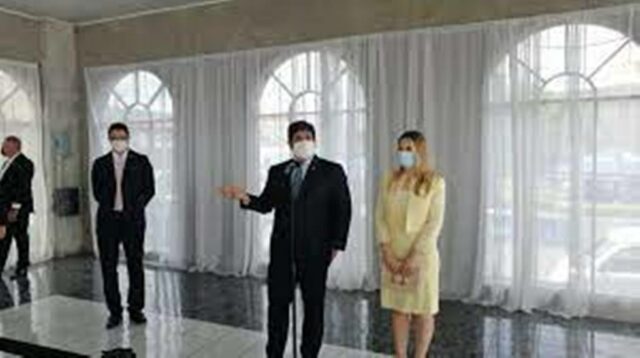After the law that vetoes the use of Styrofoam in Costa Rica comes into effect, the plastics industry raises its voice for what they consider necessary clarifications by the authorities that will apply the regulations.
As explained by the Costa Rican Chamber of the Plastic Industry (Aciplast), there is confusion, especially due to expanded polystyrene – known as EPS-. Expanded polystyrene differs from other polystyrenes, due to its transformation process, which basically occurs through the molding of pre-expanded beads by steam heat, while extruded polystyrene, for example, is a rigid foam that results from the extrusion of polystyrene by interacting with a foaming gas.
This is the material on which the law focuses, but, according to the Chamber, there are other polystyrenes used for containers, cutlery and other non-EPS products. According to the complaint, these adjustments appear in resolution DGA-248-2021 of the General Directorate of Customs.
Uncertainty
“Changes are made in some tariff paragraphs which refer to polystyrene in general, exceeding the scope of the Law, which speaks only of expanded polystyrene,” said the group.
Such uncertainty led Aciplast to ask the Ministry of Health for a clarification that clarifies the terms in which the new law will be applied.
“We have received several inquiries regarding companies that are in uncertainty due to the confusion that has occurred by not being precise about what the Law says. They would be being harmed by the changes in the tariff items. That is why we have sent a request to the Ministry for a clarification and correction in this regard,” said Jaime Cerdas, President of the Chamber. Plastics producers insist that the material known as styrofoam has a different production process than other polystyrenes (Archive)
Goodbye to the styrofoam
In 2019, the National assembly deputies amended the Comprehensive Waste Management Law to stop the use of this material. For this they gave a grace period of two years. This deadline expired on August 7th and as of that date the importation, marketing and delivery of expanded polystyrene containers in any commercial establishment is prohibited.

The regulations reserved as exceptions to the rule are the following:
– Cases in which, for reasons of conservation or protection of the products, the use of alternative materials is not environmentally viable
– Packaging of household appliances and related
– Industrial uses
– Uses in personal protective equipment, motorcycle helmets and bicycles
– Uses in flotation equipment for aquatic rescue
– Uses as a thermal or acoustic insulator
– Secondary packaging or packaging for vaccines and medicines
– Secondary packaging or packaging in foods for special diets of infant formula, and supplements to the diet
– Secondary packaging or packaging for which the manufacturer / importer has a collection system and extended responsibility of the producer / importer in accordance with Decree 38272-S, of January 7, 2014 “Regulation for the Declaration of Special Handling Waste , ”And for those who have a current contract for treatment, recovery, recycling or destruction through a waste manager authorized by the Ministry of Health, or for energy use.
– Uses as products or finishes in construction projects, in which the material is immobilized during the useful life of the building; and is required for its functionality
It should be noted that the law only contemplated the first three exceptions, but the other seven were added through the regulations.Those who do not comply with the provisions of the legislation are exposed to fines equivalent to between one and ten base salaries. This measure seeks to ensure that businesses use environmentally friendly products.

